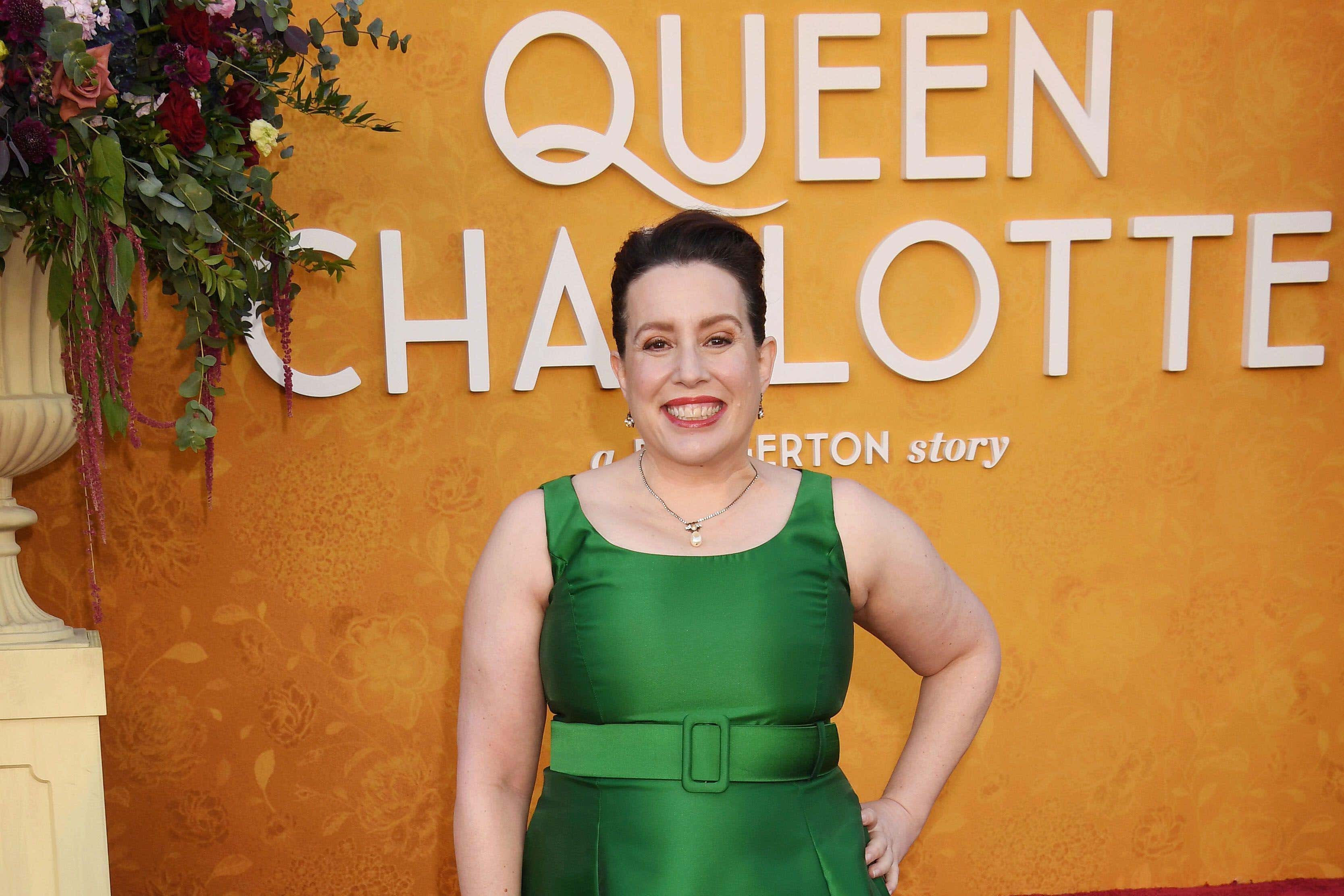Queen Charlotte author Julia Quinn: You can only survive on so many Scandinavian crime dramas
The historical romance author talks about writing sex scenes, and the frustrating misconceptions around romance novels. By Prudence Wade.

Your support helps us to tell the story
From reproductive rights to climate change to Big Tech, The Independent is on the ground when the story is developing. Whether it's investigating the financials of Elon Musk's pro-Trump PAC or producing our latest documentary, 'The A Word', which shines a light on the American women fighting for reproductive rights, we know how important it is to parse out the facts from the messaging.
At such a critical moment in US history, we need reporters on the ground. Your donation allows us to keep sending journalists to speak to both sides of the story.
The Independent is trusted by Americans across the entire political spectrum. And unlike many other quality news outlets, we choose not to lock Americans out of our reporting and analysis with paywalls. We believe quality journalism should be available to everyone, paid for by those who can afford it.
Your support makes all the difference.The romance genre often seems somewhat looked down on in literature – which Bridgerton author Julia Quinn partly credits to the fact it’s dominated by women.
“It’s very female – and women too, we tend to devalue the female,” says Quinn, who specialises in historical fiction and wrote the novels the popular Bridgerton Netflix series is based on. “We might like it, but for some reason we don’t hold it up on a pedestal as much.”
The other reason is that it’s “a genre about emotions”, Quinn believes.
“That’s another thing we don’t seem to laud, like something about emotions is not as highbrow as a great quest, or tragedy, or really bad emotions. It’s like bad emotions are artier than good emotions.”
The American writer, 53, also bemoans that some people think romance novels are just “mum porn”.
“If you want porn, if you want erotica, that’s great. But in romance novels, the sex scenes – you can’t just pull them out, because you’d be missing a part of the story,” she explains.
“With romance, if it’s done well, every intimate scene is there not just to be an intimate scene, but to move along the plot, to develop the characters or move along the relationship.”
Another common misconception she comes across is that all romance novels are the same.
“They’re not,” Quinn affirms. “In all, there are two things you have to do: your characters have to either meet or re-meet, and you have to have a happy ending – how you get from here to there is wide open.
“If you have a mystery novel, you’ve got to have a dead body and you’ve got to solve it. How you get from here to there is wide open. How disappointed would you be if you’re reading an Agatha Christie and at the end, Hercule Poirot was like, ‘That’s a stumper, I don’t know’.
“Many of them are very, very well written,” she adds of romance books. “You can easily find a bad one, but you can easily find a bad anything.
Despite not being held in the highest esteem in literature, there’s been a rise in romcoms across film and television.
With the Guardian suggesting 36 new romcoms are coming out this year on film and streamed TV – from Rye Lane to Love Again – the genre is positively thriving. Then there’s the wild success of the first two seasons of Bridgerton on Netflix, with the recently released prequel Queen Charlotte: A Bridgerton Story currently sitting in the top 10 on the streaming platform.
This surge in popularity doesn’t surprise Seattle-based Quinn.
“I think people want more happy endings than they realise they do,” she says.
“Which isn’t to say there’s anything wrong with the dark and edgy shows we also like to watch and books we like to read. But you can only survive on so many Scandinavian crime dramas.
“You need a little light in there too, and a little happiness. Sometimes it’s really nice watching or reading something, knowing you’re going to have a happy ending.”
Quinn published the first Bridgerton book, The Duke And I, back in 2000. Two decades later it caught the eye of Scandal and Grey’s Anatomy creator Shonda Rhimes, who turned it into a TV series with a diverse cast.
Now, Quinn has teamed up with Rhimes for their first joint book – a Bridgerton prequel which follows Queen Charlotte’s marriage and rise to power. This is the first book in the Bridgerton universe to reflect the diverse casting of the Netflix show, and Quinn worked a little differently for it.
Rhimes wrote the script for the series first, and then gave them to Quinn, who adapted it into the book.
“I had to break down the architecture of a screenplay and figure out how to rewrite it in prose as a novel. It’s a totally different thing.”
But she is enthusiastic about the experience, saying it “made me more involved”, as previously she “didn’t have anything to do” with the adaptations.
Plus, there are still the sex scenes fans are familiar with from the Bridgerton books and shows.
As for writing sex scenes, Quinn says they are “not what comes most naturally for me, [but] I wouldn’t say they’re immensely hard.
“For me, the scenes that write themselves are the conversations, or the funny big group scenes, because I really like writing dialogue – which is probably why when I do write sex scenes, the characters end up talking to each other a lot.”
Queen Charlotte by Julia Quinn and Shonda Rhimes is published in hardback by Piatkus, priced £22.